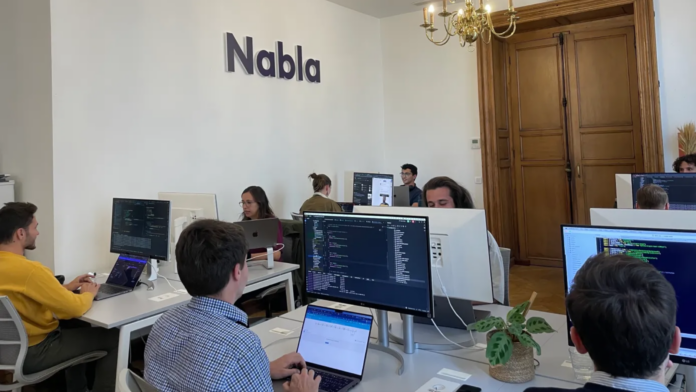In the bustling world of healthcare technology, Paris-based startup Nabla is making waves with its innovative AI assistant for doctors, a game-changer that’s set to revolutionize how clinical notes are handled. Nabla’s recent $24 million Series B funding round, spearheaded by Cathay Innovation and ZEBOX Ventures, is a testament to its growing impact in the healthcare sector. This significant financial boost, following a major partnership with Kaiser Permanente’s Permanente Medical Group, has skyrocketed Nabla’s valuation to an impressive $180 million.
Nabla’s AI copilot is a remarkable addition to the medical field. Picture this: a silent, efficient partner in the corner of the room, diligently taking notes and drafting medical reports during consultations. This AI assistant isn’t just a concept; it’s a reality that’s enhancing the way medical professionals work. Founded by the trio of Alexandre Lebrun, Delphine Groll, and Martin Raison, Nabla’s roots are in strong tech expertise, with CEO Lebrun having previously led Wit.ai before its acquisition by Facebook.
The magic of Nabla’s technology was evident in a live demo I witnessed. The setup was simple yet effective: a doctor, a mock patient, and the AI tool in action. As the consultation begins, the doctor simply hits ‘start’ on Nabla’s interface and focuses entirely on the patient, leaving the documentation to the AI.
Nabla’s prowess lies in its speech-to-text technology, seamlessly converting conversations into written transcripts. It’s versatile, catering to both in-person and telehealth appointments. Once the consultation ends, Nabla’s advanced language model, enriched with medical data, kicks in, sifting through the conversation to highlight key data points like medical vitals, drug names, and pathologies.
The result? A comprehensive medical report, complete with consultation summaries, prescriptions, and follow-up instructions, all generated in a matter of minutes. Doctors can tailor these reports to their preferences, ensuring that the final output aligns perfectly with their needs.
But Nabla’s innovation doesn’t stop there. The company’s vision extends beyond mere documentation assistance. They aim to augment, not replace, the human element in healthcare. Nabla Copilot positions doctors at the helm, with AI as a supportive tool, not a substitute. This philosophy aligns with the broader trend in AI development, where the technology enhances human capabilities rather than attempting to supplant them.
The future Nabla envisions is one of collaboration between AI and healthcare professionals. While they acknowledge the potential of AI in autonomous healthcare, they tread cautiously, recognizing the irreplaceable value of human touch in medicine. Nabla’s approach is about empowering doctors with AI, allowing them to dedicate more time and attention to patient care, rather than getting bogged down in administrative tasks.
Nabla’s reach isn’t confined to France; the U.S. market is a significant focus, especially following its expansion through Permanente Medical Group. The tool is in active use, demonstrating its practicality and effectiveness in real-world settings.
In terms of privacy, Nabla takes a conscientious approach. They’re acutely aware of the sensitive nature of medical data. The AI assistant functions as a web app or a Google Chrome extension, ensuring that audio and medical notes are only stored with explicit consent from both doctor and patient. The focus is on processing data rather than storing it, with the audio file discarded post-consultation and transcripts securely stored in existing electronic health record systems.
The technical backbone of Nabla involves a blend of Microsoft Azure’s speech-to-text API and their proprietary model, fine-tuned for medical accuracy. This hybrid approach ensures that the transcriptions are not just accurate but also contextually relevant.
As Nabla continues to evolve, they’re exploring more specialized models to further enhance the tool’s effectiveness. With over 3 million consultations processed annually in multiple languages, the data-driven improvements are set to make Nabla an even more indispensable tool in the healthcare industry.
In conclusion, Nabla’s journey is a striking example of how AI can transform healthcare practices. Their approach, focusing on enhancing rather than replacing human expertise, sets a new standard for AI applications in medicine. As Nabla continues to evolve and expand, it stands as a beacon of innovation, illustrating the profound impact AI can have in supporting and augmenting the vital work of healthcare professionals.





